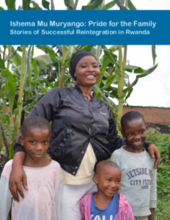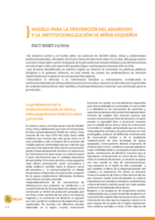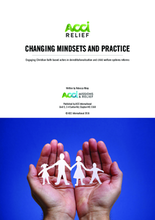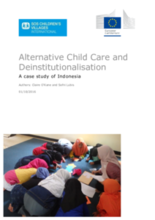Displaying 301 - 310 of 662
This country care review includes the care-related Concluding Observations adopted by the Committee on the Rights of the Child and the Committee on the Rights of Persons with Disabilities.
This animated video describes Indonesia's Families First Signature Program which began in 2005. The goal of Families First is to ensure that every child in Indonesia has a safe, family environment, recognizing that family-based care is best for child development. The video describes how the Signature Program has helped shift care away from institutions towards family-based care.
This report highlights stories of some children, youth and families who have been assisted under the Ishema Mu Muryango program. While each of their stories is unique, all highlight some common themes about institutionalization and child abandonment in Rwanda.
In this video Child's i Foundation works with Care 4 Kids, an orphanage for 53 children, which wants to reintegrate children back into families but had challenges convincing the families that they could provide better care. Child's i Foundation organised an open day for families and invited parents who had taken their children back from Rafiki to explain the benefits of children growing up in families.
This report provides an evaluation of the Keeping and Finding Families Project, a pilot foster care project in Tajikistan.
Este informe presenta información sobre el problema de institucionalización de niños en América Latina y el Caribe.
This video by Child's i Foundation in Uganda document's the journey of a little girl, Praise, from being abandoned to being placed into to a permanent family. The video shows the tracing process and temporary placement with a foster carer, Ruth.
This tool was designed to help those seeking to assist Christian faith-based actors involved in long-term residential care programs make the transition from institutional to non-institutional (family and community-based) child welfare programs.
This report is a case study of alternative child care in Indonesia. Research was conducted that found that with an estimate of 8,000 institutional facilities servicing 500,000 children, Indonesia was overly reliant on institutional care.
As of this Fact Sheet, Serbia has no comprehensive deinstitutionalization strategy.







